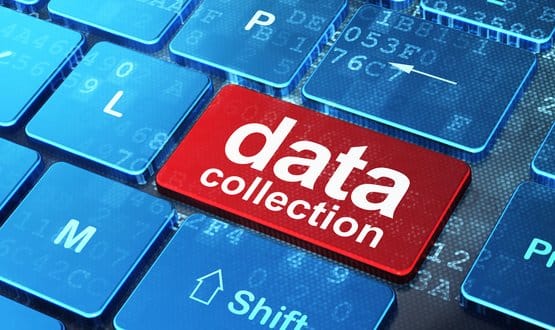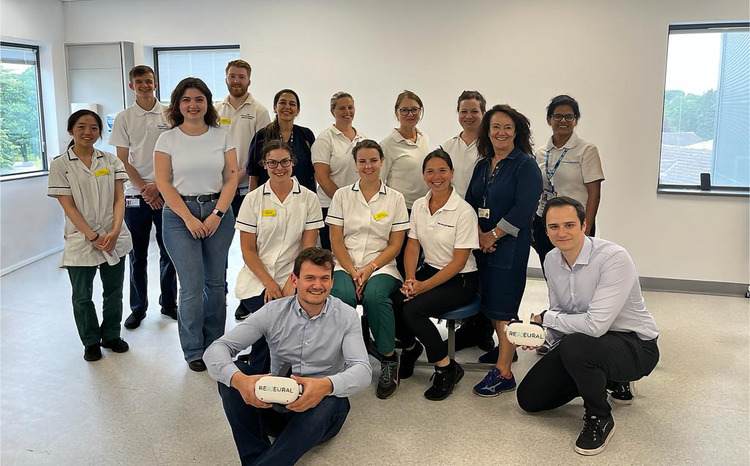NHS bosses meet with tech giants to discuss commercial patient database
- 12 December 2019

Key players from the NHS, big tech and pharma have held meetings to discuss how to commercialise tens of millions of medical records culled from a massive new proposed national patient record database.
Papers from the meeting organised by the Office of Life Sciences estimate the NHS patient data could be valued at up to £10 billion a year.
NHS England chairman, Lord David Prior, chief executive Simon Stevens and NHSX chief executive, Matthew Gould, met with big tech and pharmaceutical companies to discuss potential uses for patients’ personal records.
Documents revealed plans for a “single, standardised, event-based, longitudinal patient record” containing the data of 65 million patients, pulled together from GPs, hospitals, mental health professionals, demographics registers, prescription records as well as information from the private health sector.
The information would not only be used to serve the NHS, it could be used to provide companies and researchers real-time access to medical data.
Commercial models discussed ranged from the NHS receiving no fees but instead “receiving a curated dataset” through to a royalty fee and shared ownership or products based on NHS data.
Under the proposed free commercial model set out in the papers, the NHS would essentially give away access to all patient data to other parties for no financial return, “the NHS does not receive a direct return but benefits indirectly through increased/better innovation in the wider healthcare system”, the documents state.
In another of the proposed commercial models the NHS would get paid a fee for handing over patient data and then be “be eligible for a discount on any product developed from the collaboration”.
NHS Improvement chair, Baroness Dido Harding, NHS Digital chief executive, Sarah Wilkinson, and chief executive of University Hospitals Birmingham NHS Foundation Trust, Dr David Rosser, were also in attendance, according to documents first reported by The Register and now obtained by Digital Health News.
Alongside NHS players were key industry figures including Amazon UK boss and British Heart Foundation chairman Doug Gurr, Microsoft UK CEO Cindy Rose, joint chief executive of System C Healthcare, Markus Bolton, and Dr Jim Weatherall, vice president for data science and AI for pharma giant AstraZeneca.
The confidential ‘NHS England Health and Care Data Day’, held on October 24, saw discussions around collecting patient data to improve healthcare services, how to fund the data-management project and potentially share profits from it.
An investment of up to £3bn would be required at the data-curation stage, the documents revealed, using estimates based on figures provided by Sensyne Health. Whether patient consent was considered at the meeting is unclear.
The plan to create a database of patient data would occur in three phases. Phase one would focus on linking data between sources including GPs, hospitals and medical devices.
Phase two would focus on using analytics and machine learning models to create insights. Phase three would involve providing these insights to clinicians, researchers and academics, it was reported.
The papers state that creation of the database would make the NHS more attractive to global industry players, as well as improve outcomes for clinical trials, drug discovery and medical technology.
Processes of curating and integrating patient data are said to have already begun through the Local Health and Care Record Exemplar (LHCRE) programme; NHS Digital’s data collections; and clinical programmes including the 10,000 Genome Project.
In July the government pumped £37.5 million into new research centres connecting regional healthcare data with genetic and biomedical information.
Between three and five ‘Digital Innovation Hubs’ will be established over the next three years, which pull data from GP practices, hospitals, social and community care providers for research and development purposes.
The British Heart Foundation, whose chairman was at the meeting, launched a £10m national data science centre in October to drive new research into the prevention and treatment of cardiovascular disease using big data analytics.
These projects were said to have “created valuable data collections” and now the focus had shifted to bringing it all together, state the papers seen by Digital Health News.
“These fragmented initiatives have served their multiple separate purposes well. They do not, in aggregate, provide standardised, event-based, longitudinal records for each citizen but they provide the foundations on which such records could be built,” NHS Digital said in the documents.
All the points raised in the agenda were highlighted as discussion only, not official government policy. But the October meeting also followed an initial meeting in September and the papers speak of further planning meetings to follow.





2 Comments
As big tech and pharma have met with NHS bosses to discuss how to commercialise tens of millions of medical records culled from a massive new proposed national patient record database, perhaps we, as patients, should make SARs to check GDPR compliance of companies liable to potentially share profits from our data?
I am a proactive proponent of shared access to records, however, I no longer feel inclined to share my personal health data. If profits were returned to communities, then my opinion would change, albeit of no consequence to the commercial sector!
These large companies can exist with profiting from NHS patients ill health.
The UK passed up the chance to directly benefit from the discovery of monoclonal antibodies by Cesar Milstein by refusing to patent them. As a result, the wider community benefited…but many US pharma companies became very rich from exploiting them. Similarly Tim Berners-Lee refused to patent the Internet…and we got Google and Amazon. Data is valuable, and those companies wanting to use it should pay a proper price. I hope the NHS doesn’t let itself be exploited again by making its data available free.
Comments are closed.